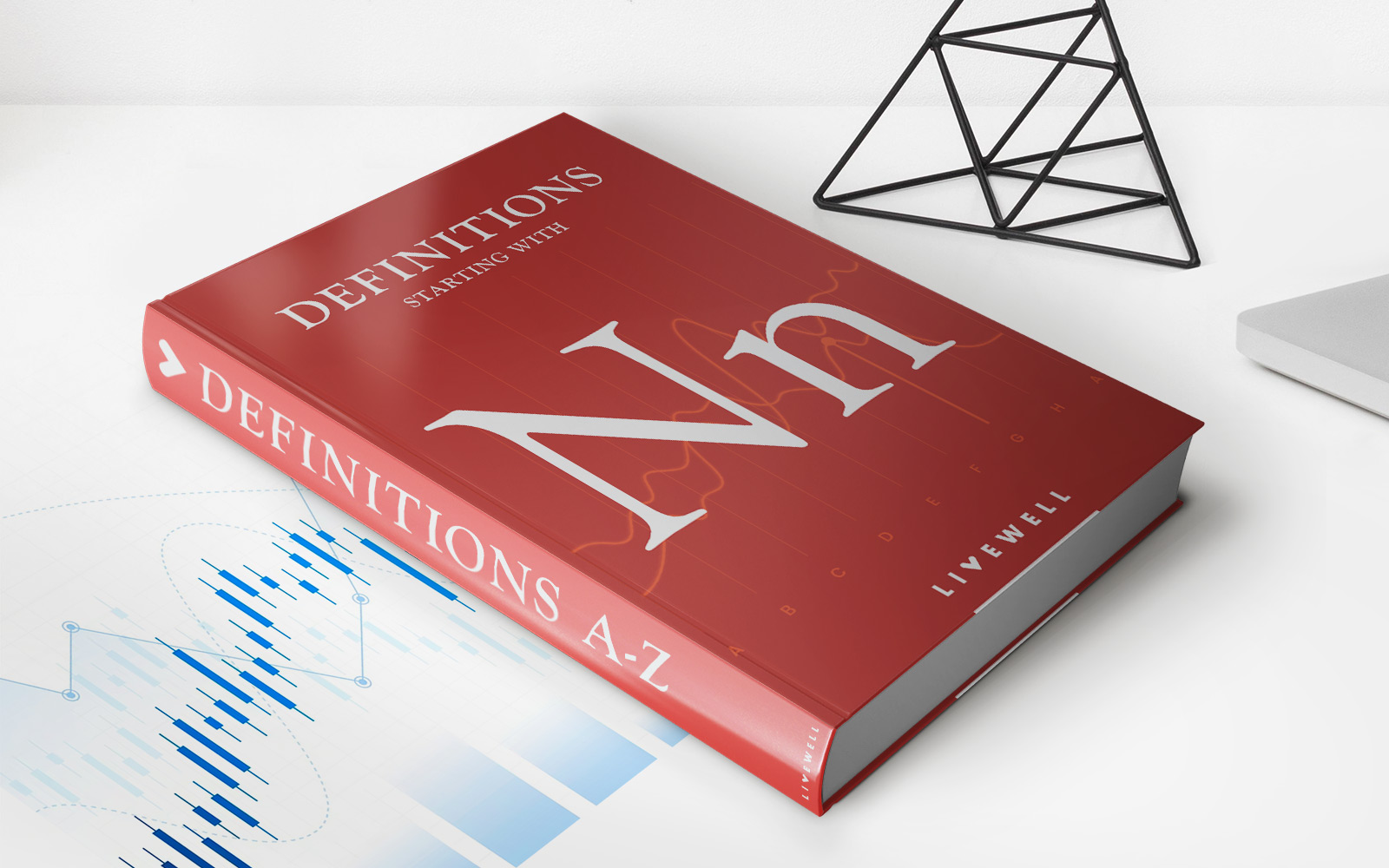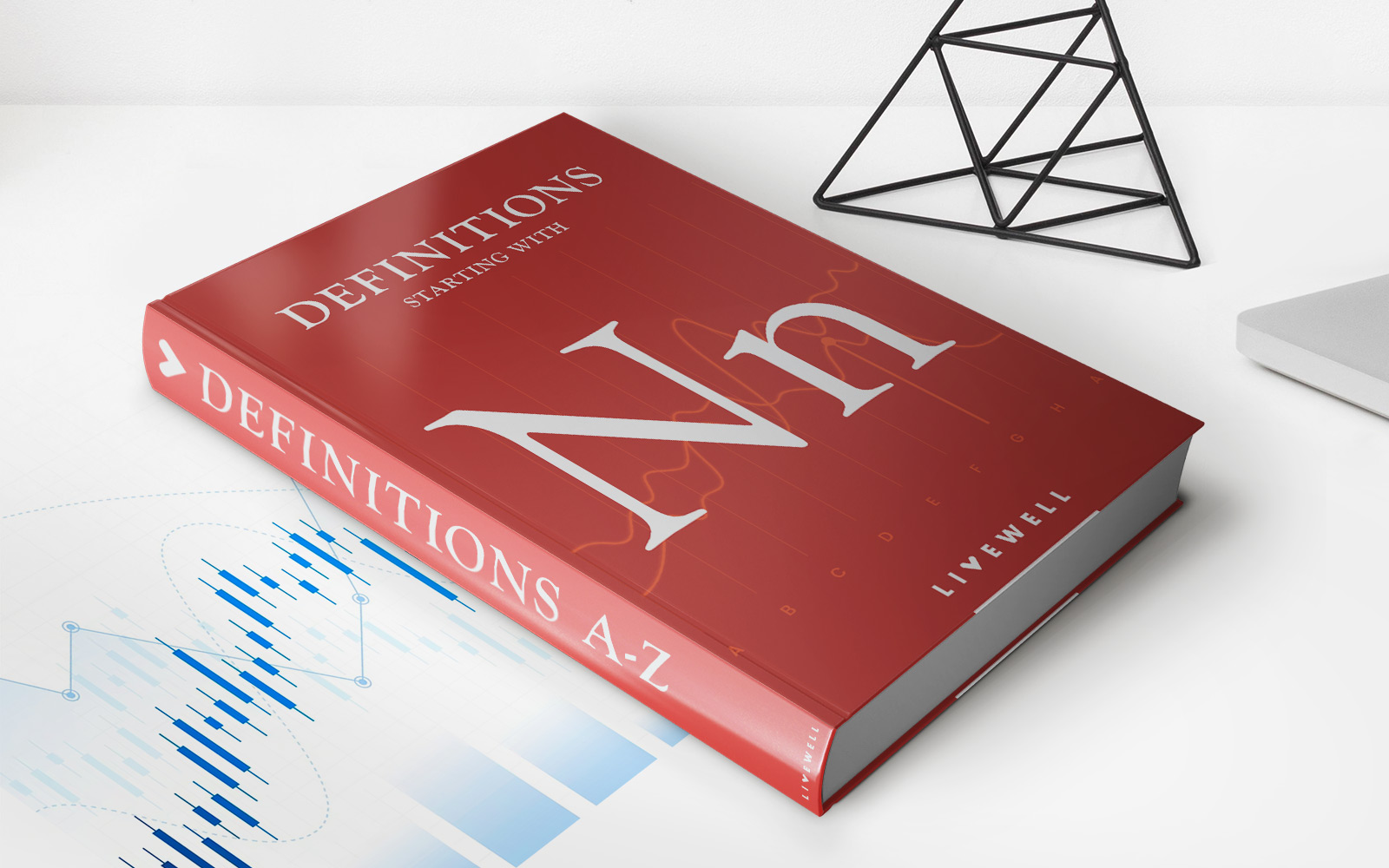

Finance
What Does Non Credit Mean
Published: January 4, 2024
Learn the meaning of non-credit in the context of finance and how it can impact your financial goals. Discover the implications and benefits of non-credit transactions.
(Many of the links in this article redirect to a specific reviewed product. Your purchase of these products through affiliate links helps to generate commission for LiveWell, at no extra cost. Learn more)
Table of Contents
- Introduction
- Definition of Non Credit
- Importance of Non Credit
- Non Credit Courses and Programs
- Non Credit vs. Credit Courses
- Benefits of Non Credit Education
- Non Credit Education for Professional Development
- Non Credit Courses in Universities and Colleges
- Non Credit Education for Personal Enrichment
- Conclusion
Introduction
Non-credit education plays a crucial role in today’s ever-evolving world, offering individuals the opportunity to learn and develop new skills without the pressure of formal grading or credit accumulation. This form of education is becoming increasingly popular, as it provides flexibility and accessibility to learners of all backgrounds and interests.
So, what exactly does non-credit mean? In the realm of education, non-credit refers to courses, workshops, and programs that do not count towards earning a degree or academic credit. Instead, they focus on providing knowledge, practical skills, and personal enrichment.
Non-credit education encompasses a wide range of subjects, including professional development, personal interests, and lifelong learning. Whether it’s learning a new language, acquiring digital marketing skills, or exploring your passion for cooking, non-credit courses and programs offer endless opportunities for self-improvement.
The importance of non-credit education lies in its ability to cater to diverse learning needs and interests. Unlike traditional credit-based education, non-credit programs are flexible and often shorter in duration, allowing learners to dive into specific areas of interest without committing to a long-term academic program. This flexibility is especially valuable in a fast-paced world, where individuals may not have the time or resources to pursue a degree but still seek personal and professional development.
Non-credit courses and programs are typically designed to be practical and applicable to real-life situations, focusing on hands-on learning experiences rather than theory-centric curriculum. This approach enables learners to gain relevant skills and knowledge that can be immediately implemented in their personal and professional lives. Whether it’s acquiring new job-related skills to enhance career prospects or exploring a new hobby for personal fulfillment, non-credit education helps individuals expand their horizons and seize new opportunities.
Next, let’s explore the differences between non-credit and credit courses and delve into the benefits of non-credit education in more detail.
Definition of Non Credit
Non-credit education refers to courses, workshops, and programs that are offered by educational institutions but do not count towards the accumulation of academic credit or the earning of a formal degree. While these courses are often taught by qualified instructors and cover various subjects, they are primarily designed to provide practical skills and knowledge rather than meeting the requirements of a degree program.
Unlike credit-bearing courses, which are part of degree programs and require students to complete assignments, exams, and assessments to earn credit hours, non-credit courses focus on skill development, personal enrichment, and professional enhancement. These courses are available to students of all ages and backgrounds, and participants often receive a certificate of completion instead of traditional academic credit.
The flexibility of non-credit education allows individuals to explore a wide range of topics and interests without the commitment of a long-term academic program. Whether someone wants to learn a new language, develop their artistic skills, or enhance their leadership abilities, non-credit courses provide a valuable learning experience.
Non-credit courses are typically shorter in duration compared to credit-based courses, ranging from a few days to a few months. They often take the form of workshops, seminars, or continuing education programs, allowing participants to focus on acquiring specific skills or knowledge in a condensed period. These courses are frequently offered in the evenings, weekends, or online to accommodate a wide range of schedules.
Furthermore, non-credit education is not limited to traditional academic institutions. Many community organizations, vocational schools, and professional training centers offer non-credit courses tailored to specific industries or interests. This diversifies the options available to individuals seeking non-credit education and enables them to choose programs that align with their goals and aspirations.
In summary, non-credit education provides an alternative pathway for individuals to pursue learning opportunities outside of the traditional credit-based system. By focusing on practical skills, personal enrichment, and professional development, non-credit courses empower learners to expand their knowledge, enhance their abilities, and thrive in various aspects of their lives.
Importance of Non Credit
Non-credit education holds significant importance in today’s society, offering numerous benefits and opportunities for individuals of all ages and backgrounds. Let’s explore why non-credit education is valuable and why it continues to gain popularity.
1. Flexibility: Non-credit courses provide learners with the flexibility to pursue their educational goals without the constraints of a full-time schedule or long-term commitment. Whether someone is juggling a full-time job, family responsibilities, or other personal obligations, non-credit education allows them to access knowledge and acquire skills at their own pace and convenience.
2. Lifelong Learning: Non-credit education encourages and supports lifelong learning. It emphasizes the idea that education should not be limited to a certain age or stage of life. Individuals can continue to pursue their interests, develop new skills, and stay up-to-date with the latest trends and advancements in their respective fields through non-credit courses.
3. Practical Skills: Non-credit education focuses on providing practical skills and knowledge that can be directly applied in real-life situations. These courses are designed to equip learners with the necessary skills to excel in their personal and professional lives. Whether it’s learning coding languages, acquiring marketing skills, or improving communication abilities, non-credit courses help individuals enhance their skill set and increase their marketability.
4. Personal Enrichment: Non-credit courses are not solely limited to professional development. They also offer opportunities for personal enrichment and growth. Whether someone wants to explore their passion for photography, expand their cultural knowledge, or learn a new instrument, non-credit education provides a platform for individuals to pursue their hobbies and interests.
5. Career Advancement: Non-credit education plays a vital role in career advancement by allowing individuals to acquire new skills and stay current in their respective fields. Many industries are continuously evolving, and non-credit courses offer professionals the chance to update their knowledge and improve their job prospects without committing to a full-time degree program.
6. Networking and Community Building: Non-credit courses provide an opportunity for individuals to connect and network with like-minded individuals. By participating in workshops, seminars, and programs, learners can build relationships, exchange ideas, and expand their professional network, which can be valuable for future collaborations and career opportunities.
7. Exploration of Interests: Non-credit education allows individuals to explore a variety of interests and potential career paths without the need for a long-term commitment. It gives learners the chance to test the waters, discover new passions, and make informed decisions about their educational and professional journey.
Overall, non-credit education offers a wealth of benefits, from flexible learning options to practical skill development and personal enrichment. By embracing non-credit courses and programs, individuals can continuously grow, adapt to changing environments, and enhance their overall quality of life.
Non Credit Courses and Programs
Non-credit courses and programs encompass a wide range of subjects and disciplines, catering to the diverse interests and learning needs of individuals. These courses are designed to provide practical skills, personal enrichment, and professional development. Let’s explore some common types of non-credit courses and programs:
1. Professional Development: Non-credit courses focused on professional development aim to enhance individuals’ skills and knowledge in specific industries or occupations. These courses can include topics such as project management, leadership skills, digital marketing, financial planning, and entrepreneurship. They provide practical insights and tools to excel in the workplace and advance careers.
2. Language Courses: Learning a new language is a popular non-credit course choice for many individuals. Whether you want to brush up on your language skills for travel purposes, communicate with a wider range of people, or improve your employability in a globalized world, non-credit language courses offer the opportunity to learn languages such as Spanish, French, Mandarin, or Arabic.
3. Computer and Technology Skills: As technology continues to advance rapidly, non-credit courses focusing on computer and technology skills are in high demand. These courses can cover areas such as coding and programming languages, website development, data analysis, graphic design, or software applications. They equip learners with the necessary skills to navigate the digital world effectively.
4. Arts and Creative Courses: Non-credit courses in arts and creative fields provide individuals with opportunities for personal expression and exploration. These courses can include painting, drawing, photography, sculpture, creative writing, music, or acting. They help individuals unleash their creativity, develop artistic skills, and find joy in self-expression.
5. Health and Wellness: Non-credit courses focused on health and wellness aim to promote physical and mental well-being. These courses can cover topics such as yoga, meditation, nutrition, fitness, stress management, or holistic healing. They provide individuals with tools and techniques to lead a healthy lifestyle and improve overall wellness.
6. Personal Finance and Investment: Non-credit courses in personal finance and investment help individuals gain financial literacy and make informed decisions about managing their money. These courses can cover topics such as budgeting, investing, retirement planning, real estate, or estate planning. They provide practical knowledge to achieve financial stability and make sound financial choices.
7. Continuing Education: Many professionals require ongoing education and training to maintain their licenses or certifications. Non-credit courses provide avenues for professionals in fields such as education, healthcare, law, or finance to meet the continuing education requirements. These courses ensure professionals stay up-to-date with the latest industry developments.
These are just a few examples of the wide array of non-credit courses and programs available. Educational institutions, community organizations, and online platforms offer a vast selection of non-credit options, allowing individuals to pursue their interests, develop new skills, and thrive in various aspects of their lives.
Non Credit vs. Credit Courses
Non-credit courses and credit courses are two distinct types of educational offerings, each serving different purposes and catering to different learning needs. Let’s explore the key differences between non-credit and credit courses.
1. Academic Credit: One of the primary distinctions between non-credit and credit courses is the accumulation of academic credit. Credit courses are an integral part of degree programs and require students to earn a certain number of credit hours to complete their degrees. In contrast, non-credit courses do not count towards earning a degree or academic credit. They focus more on skill development, personal enrichment, and professional enhancement.
2. Grading and Assessment: Credit courses involve formal grading and assessment systems that determine students’ progress and final grades. Assessment methods can include exams, papers, projects, and assignments. In non-credit courses, the emphasis is less on formal grading and more on acquiring practical skills and knowledge. Participants typically receive a certificate of completion or attendance, acknowledging their participation and achievement.
3. Requirement for Formal Admission: Credit courses often require students to go through a formal admission process or meet specific prerequisites before enrolling. This is because these courses are part of a degree program and are designed to meet certain academic standards. Non-credit courses, on the other hand, are typically open to anyone interested, regardless of prior educational background or qualifications.
4. Duration and Time Commitment: Credit courses are usually longer in duration and require a significant time commitment from students. They can span an entire semester or academic year, following a structured schedule. Non-credit courses, on the other hand, are often shorter in duration, ranging from a few days to a few months. They are designed to be flexible and accommodate the busy schedules of learners with other obligations.
5. Curriculum and Focus: Credit courses are designed to provide a comprehensive and in-depth understanding of a specific subject or field of study. They often follow a structured curriculum that covers a range of topics and concepts. Non-credit courses, however, tend to be more focused on practical application and skill development. The curriculum is designed to provide hands-on learning experiences, allowing participants to acquire specific skills or knowledge in a particular area.
6. Transferability: Credit courses can be transferred to other institutions or used to fulfill certain degree requirements at a later stage. Non-credit courses, on the other hand, are generally not transferable for credit towards a degree program. They are primarily taken for personal enrichment or to acquire specific skills for personal or professional development.
Both non-credit and credit courses have their own unique benefits and appeals. Credit courses are essential for earning degrees and academic recognition, while non-credit courses offer flexibility, practical learning experiences, and the opportunity for personal growth and development.
Benefits of Non Credit Education
Non-credit education offers numerous benefits for individuals seeking personal and professional development. Whether you want to acquire new skills, pursue a passion, or explore a new field, non-credit education provides a flexible and accessible pathway for growth. Let’s delve into some key benefits of non-credit education:
1. Flexibility: Non-credit courses are designed with flexibility in mind, allowing individuals to learn at their own pace and convenience. These courses often offer flexible scheduling options, including evenings, weekends, and online formats, accommodating various lifestyles and commitments.
2. Accessibility: Non-credit courses are accessible to individuals of all backgrounds and educational levels. They do not typically require formal admission or prerequisites, making them available to anyone interested in learning and personal growth.
3. Practical Skills: Non-credit education focuses on practical skills and knowledge that can be immediately applied in real-life situations. Whether it’s learning to code, improving communication skills, or developing leadership capabilities, non-credit courses provide tangible skills that can enhance career prospects and personal effectiveness.
4. Personal Enrichment: Non-credit education allows individuals to pursue their passions and interests. Whether it’s exploring a new hobby, learning a new language, or discovering artistic talents, non-credit courses provide opportunities for personal enrichment, self-expression, and lifelong learning.
5. Networking Opportunities: Non-credit courses often bring together individuals with similar interests and aspirations. This creates networking opportunities and fosters connections with like-minded individuals, which can lead to valuable collaborations, mentorships, and potential career advancements.
6. Cost-Effective: Non-credit education is often more cost-effective compared to traditional credit-based programs. Since non-credit courses do not provide academic credit towards a degree, they are typically offered at a lower cost. This makes non-credit education accessible to a wider range of individuals seeking affordable learning opportunities.
7. Professional Development: Non-credit education offers valuable professional development opportunities. Whether you want to gain new job-related skills, increase your marketability, or transition to a new industry, non-credit courses can provide the knowledge and skills necessary for professional growth and advancement.
8. Lifelong Learning: Non-credit education promotes lifelong learning, encouraging individuals to continue expanding their knowledge and skills beyond formal education. It fosters a mindset of continuous improvement and adaptability, allowing individuals to stay relevant in a rapidly changing world.
9. Personalized Learning: Non-credit courses often offer personalized learning experiences, allowing participants to focus on specific areas of interest or skills they wish to develop. This customization enables learners to tailor their education to their individual goals and needs.
10. Skill Enhancement for Current Job: Non-credit courses can provide valuable skill enhancement opportunities for individuals already in the workforce. These courses allow for the development of specific skills and knowledge necessary for career advancement within their current job or profession.
Non-credit education is a valuable resource for individuals seeking personal growth, skill development, and career enhancement. With its flexibility, accessibility, and focus on practical learning, non-credit education opens doors to new opportunities and enriches lives in various ways.
Non Credit Education for Professional Development
Non-credit education plays a vital role in professional development, offering individuals the opportunity to acquire new skills, enhance existing ones, and stay competitive in today’s rapidly evolving job market. Whether you’re looking to advance your career, transition to a new field, or broaden your skill set, non-credit courses provide valuable resources for professional growth.
Here are some key ways in which non-credit education supports professional development:
1. Acquiring In-Demand Skills: Non-credit courses often focus on providing practical and industry-specific skills that are in high demand. These courses help individuals develop expertise in areas such as digital marketing, data analysis, project management, leadership, coding, or communication. By acquiring these skills, professionals can become more marketable and expand their career opportunities.
2. Staying Current in Your Field: Many industries experience ongoing changes and advancements. Non-credit courses allow professionals to stay up-to-date with emerging trends, technologies, and best practices in their respective fields. By continuously updating their knowledge and skills, professionals can remain relevant and adaptable in a competitive job market.
3. Closing Skill Gaps: Non-credit education can help individuals fill any skill gaps they may have encountered in their career. Whether it’s improving computer literacy, enhancing critical thinking abilities, or mastering effective communication, non-credit courses offer targeted skill development to address specific areas of improvement.
4. Expanding Professional Network: Non-credit courses provide opportunities for professionals to expand their network and connect with individuals in their industry or related fields. Networking with like-minded professionals can lead to valuable collaborations, mentorships, and potential career advancements.
5. Boosting Confidence and Credibility: Non-credit education not only enhances professional skills but also boosts confidence and credibility. Adding relevant non-credit certifications and credentials to your resume can demonstrate your commitment to continuous learning and professional growth, which can make you stand out to potential employers or clients.
6. Transitioning Careers: Non-credit education can be particularly valuable for individuals looking to transition to a new career or industry. These courses provide foundational knowledge and skills necessary for a successful transition, enabling professionals to bridge the gap and pursue their desired career path.
7. Opening Doors for Advancement: Non-credit education can open doors for career advancement within your current organization. By taking non-credit courses that align with your professional goals, you can demonstrate your commitment to self-improvement and position yourself as a valuable asset to your employer.
8. Continuing Education Requirements: Many professions require professionals to meet continuing education requirements to maintain licensure or certification. Non-credit courses provide a convenient and accessible way for professionals to fulfill these requirements and demonstrate their commitment to professional development.
Non-credit education offers an invaluable platform for professionals to enhance their skills, expand their knowledge, and advance their careers. With its focus on practical learning, flexibility, and diverse course offerings, non-credit education equips professionals with the tools they need to thrive in today’s competitive professional landscape.
Non Credit Courses in Universities and Colleges
Non-credit courses are not limited to community organizations or vocational schools; many universities and colleges also offer non-credit education options. These institutions recognize the value and demand for flexible and accessible learning opportunities outside of traditional degree programs. Let’s explore how non-credit courses are offered in universities and colleges.
1. Course Offerings: Universities and colleges often provide a wide range of non-credit courses in various disciplines, reflecting the diverse interests and needs of learners. These can include professional development courses, language classes, personal enrichment programs, or short-term skill-based workshops. The course catalog for non-credit offerings is typically available on the institution’s website or through their continuing education department.
2. Instructors and Resources: Non-credit courses in universities and colleges are taught by qualified instructors who are experts in their respective fields. These instructors bring real-world experience and academic knowledge to the classroom, ensuring high-quality instruction and practical learning outcomes. Non-credit students may also have access to university resources, such as libraries, research facilities, and learning materials, enhancing their educational experience.
3. Online and In-person Options: Universities and colleges often offer non-credit courses in various formats to cater to different learning preferences and schedules. Non-credit courses can be conducted in-person on campus, providing a classroom experience. Alternatively, institutions may offer non-credit courses online, allowing students to access course materials and complete assignments remotely. This flexibility in course delivery gives learners the opportunity to choose the format that best suits their needs.
4. Continuing Education Programs: Many universities and colleges have dedicated departments or divisions that focus on continuing education and non-credit offerings. These departments are responsible for developing, coordinating, and promoting non-credit courses and programs. They work closely with industry professionals and experts to design courses that align with market demands and provide valuable learning experiences.
5. Certificate Programs: Alongside individual non-credit courses, universities and colleges often offer certificate programs that provide a more comprehensive and structured approach to non-credit education. These certificate programs consist of a series of related courses focused on a specific topic or skill, providing in-depth learning and a recognized credential upon completion. Certificate programs can be valuable for individuals seeking to develop expertise in a particular area or industry.
6. Transferability: While non-credit courses themselves typically do not offer academic credit, some universities and colleges allow non-credit course completions to be applied towards credit-based programs in the future. This means that individuals who complete non-credit courses and later decide to pursue a degree may have the option to transfer those course credits and reduce the number of credit hours required for graduation.
Non-credit courses in universities and colleges provide individuals with the opportunity to access high-quality education, benefit from university resources, and learn from qualified instructors. These courses are designed to meet the diverse learning needs of individuals seeking personal enrichment, skill development, or professional growth. Whether you’re looking to expand your knowledge, acquire new skills, or explore a new field, non-credit courses offered by universities and colleges can be a valuable educational option.
Non Credit Education for Personal Enrichment
Non-credit education extends beyond professional development and also offers numerous opportunities for personal enrichment. These courses provide a platform for individuals to explore their interests, expand their horizons, and engage in lifelong learning. Let’s explore how non-credit education can enhance personal growth and enrichment.
1. Pursuing Passions: Non-credit courses allow individuals to pursue their passions and delve into areas of personal interest. Whether it’s learning a musical instrument, practicing photography, exploring creative writing, or discovering the art of cooking, non-credit education fosters personal fulfillment and satisfaction.
2. Developing Hobbies: Non-credit courses provide an avenue for individuals to develop new hobbies or enhance existing ones. From painting to gardening, from woodworking to dancing, these courses offer guidance, skill-building, and a supportive environment for individuals to nurture their hobbies and tap into their creative potential.
3. Cultural Exploration: Non-credit education exposes individuals to various cultures and traditions. Language courses, cultural workshops, or art history classes can help individuals gain a deeper understanding and appreciation for different cultures, widening their worldview and fostering a sense of cultural inclusiveness.
4. Intellectual Stimulation: Non-credit courses offer the opportunity for intellectual stimulation outside of the traditional academic setting. Engaging in discussions, critical thinking, and learning new concepts stimulate the mind and keep it active, leading to personal growth and mental wellbeing.
5. Personal Well-being: Non-credit courses focusing on health, wellness, and mindfulness provide individuals with tools and techniques to improve their overall well-being. These courses may cover topics such as yoga, meditation, stress management, nutrition, or mindfulness practices, enabling individuals to enhance their physical, mental, and emotional health.
6. Lifelong Learning: Non-credit education promotes the idea of lifelong learning. It encourages individuals to continue acquiring knowledge and developing new skills throughout their lives. By engaging in non-credit courses, individuals can stay intellectually curious and pursue personal growth well beyond their formal education years.
7. Social Interaction: Non-credit courses create opportunities for social interaction and community building. Individuals with shared interests come together, fostering connections and building networks. This social aspect of non-credit education can contribute to personal enrichment, a sense of belonging, and the fostering of lifelong friendships.
8. Self-Discovery: Non-credit courses provide individuals with the space to explore new interests and discover hidden talents. Trying out new subjects or activities in a non-credit setting allows individuals to take risks, embrace curiosity, and embark on a journey of self-discovery and personal growth.
Non-credit education for personal enrichment offers endless possibilities for individuals to engage in meaningful learning experiences, broaden their knowledge, and discover new passions. By participating in non-credit courses, individuals can nurture their creativity, expand their horizons, and experience personal growth that extends far beyond traditional academic pursuits.
Conclusion
Non-credit education holds immense value in today’s society, offering individuals the opportunity to learn, grow, and explore new horizons. Whether for professional development or personal enrichment, non-credit courses and programs provide a flexible and accessible pathway for continuous learning and self-improvement.
Non-credit education allows individuals to acquire practical skills, expand their knowledge base, and stay up-to-date with industry trends. It offers a platform for individuals to explore new interests, pursue passions, and develop hobbies. Non-credit courses provide the opportunity for personal and professional growth, enabling individuals to enhance their career prospects, boost their confidence, and open doors for advancement.
The flexibility of non-credit education allows learners to tailor their educational experience to their specific needs and schedules. With options for online learning, evening or weekend classes, and a diverse array of subjects, non-credit courses cater to the unique circumstances and goals of individuals from all walks of life.
Moreover, non-credit education fosters a lifelong learning mindset, encouraging individuals to continuously seek knowledge, acquire new skills, and adapt to a rapidly changing world. It promotes personal fulfillment, intellectual stimulation, and cultural exploration. Non-credit education nourishes both the mind and the soul, providing opportunities for self-discovery, personal growth, and enrichment.
In conclusion, non-credit education is a valuable resource that should not be overlooked. It offers the chance to expand one’s horizon, pursue passions, develop skills, and broaden perspectives. Whether you are seeking professional development, personal enrichment, or simply the joy of learning, non-credit education provides a pathway to achieving your goals and continuing your journey of lifelong learning. Embrace the opportunities that non-credit education offers, and unlock your full potential.














